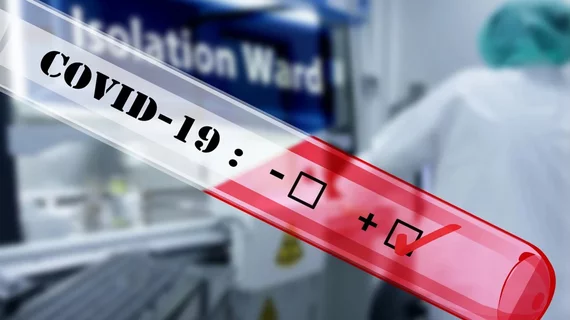Long-term heart and lung injury has been observed in COVID-19 patients, but new research suggests the damage may attenuate over time.
The findings, presented during the European Respiratory Society International Congress, included 86 consecutive COVID-19 patients treated in Austria. The average patient age was 61. All patients were enrolled from April 29 to June 9, 2020, and they were asked to return for additional evaluations six, 12 and 24 weeks after being discharged. Evaluations included a clinical exam, laboratory work, a thorough blood analysis, lung function tests, CT imaging and echocardiograms.
Overall, lung damage was present in 88% of patients six weeks after discharge. After 12 weeks, however, that number dropped to 56%—and the data for 24 weeks has not yet been collected.
“The bad news is that people show lung impairment from COVID-19 weeks after discharge; the good news is that the impairment tends to ameliorate over time, which suggests the lungs have a mechanism for repairing themselves,” researcher Sabina Sahanic, MD, University Clinic in Innsbruck, Austria, said in a statement from the European Respiratory Society.
Looking specifically at cardiac damage, the team noted that echocardiograms showed left ventricular diastolic dysfunction in 58.5% of patients six weeks after discharge. Blood clots and inflammation were also both elevated. However, the team “did not observe any severe coronavirus-associated heart dysfunction in the post-acute phase” and diastolic dysfunction “tended to improve with time.”
“The findings from this study show the importance of implementing structured follow-up care for patients with severe COVID-19 infection,” Sahanic said in the same statement.

